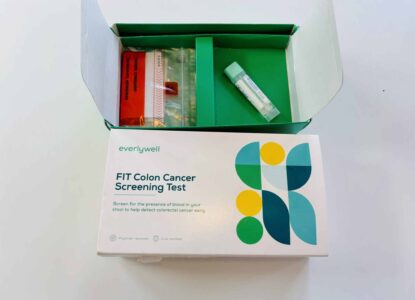Rhodiola Rosea Supplements: Benefits vs. Side Effects

Contents
It probably won’t come as a surprise to anyone who has been living on the planet Earth for the last year that some of us have been looking for natural ways to cope with stress. Unfortunately, 2020 was quite the year, and 2021 is getting off to an inauspicious start as well. While exercise and meditation are probably better first line defenses against stress, there can be a limited role for supplements as well.
In terms of stress relief, the adaptogenic herb Rhodiola rosea has shown promise in some studies as a natural calming agent.
Before I get into the reported benefits and side effects with Rhodiola supplements, as well as my experience, first some background.
What is Rhodiola rosea?
Rhodiola Rosea is the scientific name for arctic golden root, a plant that, as the name suggests, grows in the cold mountainous regions of Europe and Asia.
Rhodiola is a type of adaptogenic herb, a class of plants used for centuries in different cultures to regulate the stress response.
Does Rhodiola Rosea have proven health benefits?
Sort of. While Rhodiola has been used medicinally in Russia and Scandinavia for centuries, the studies looking at benefits are small and the journals publishing the studies are often obscure. There simply isn’t enough clinical data to make sweeping claims about the health impact of this herb.
Reputed health benefits of Rhodiola Rosea
Even recognizing that the data is limited, below I have compiled a list of the science backed health benefits teased out by the small number of studies that have looked at the medicinal properties of arctic golden root.
#1. Stress relief
We’ve written previously about another popular adaptogenic herb, Ashwgandha, another supplement with a track record of lowering stress.
Rhodiola is said to have similar properties with one small study in the peer reviewed Journal Phytotherapy Research reporting success in 101 patients given 200mg of Rhodiola twice a day for 4 weeks. The subjects given Rhodiola reported lower subjective stress as measured by a series of questionnaires at the end of the trial. It is important to point out that the study was not randomized.
The next serious Rhodiola stress study we found is of interest to me as a startup founder, a profession that is especially prone to burnout. Appearing in the peer reviewed Journal Neurophyciatric Disease and Treatment, researchers looked at how supplementing with Rhodiola, at a dose of 400 mg a day, contributed to alleviating symptoms of burnout. After 12 weeks, subjects saw improvement across all the metrics measured, including improvement in sex life.
#2. Energy and athletic performance
This double blind, placebo controlled Swedish study found significant improvements in waking levels of the stress hormone cortisol and overall reduction in stress related fatigue compared to the placebo group in individuals given 586 mg of Rhodiola a day for 28 days. Very few side effects were reported.
Another study from 2004, which was published in the International Journal of Sport Nutrition and Exercise Metabolism, found that a single 200 mg dose of Rhodiola prior to cycling improved athletic performance.
See also: The best supplements for runners
#3. May reduce depression symptoms
Depression is a serious problem in America and one that has worsened during the pandemic. We have written previously about serotonin boosting supplements and why it’s good to be cautious with supplements that alter brain chemistry. Rhodiola is no exception. As with any new supplement, and especially if the goal is enhanced mental health, be sure to check with your physician before taking Rhodiola.
One of the best studies looking at Rhodiola for treatment of depression was published in the Nordic Journal of Psychiatry in 2007. The trial had a relatively small sample size at 89 participants, but was a double blind, placebo controlled trial that lasted 6 weeks. Authors found that treatment with Rhodiola rosea at daily doses of both 340 mg and 680 mg showed similar benefits for mild to moderate depression. Improvement in depressive symptoms as well as insomnia were observed in the treatment group at both the 340 mg and 680 mg dose, but not the placebo group.
No serious side effects were reported.
Another Rhodiola depression study worth noting compared Rhodiola head to head vs. the popular anti-depressant Zoloft. In this study, which appeared in the Journal Phytomedicine in 2015, 57 patients suffering from depression were given either Zoloft, Rhodiola or placebo. All groups saw improvements in depressive symptoms, and the Zoloft group saw greater improvement than the Rhodiola group, however, side effects with Rhodiola were far less than with Zoloft, causing the authors to make this conclusion:
These findings suggest that R. rosea, although less effective than sertraline, may possess a more favorable risk to benefit ratio for individuals with mild to moderate depression.
Here is the thing to note about both these studies: although they show promise, the sample size is very small. There isn’t yet enough data to suggest that Rhodiola should be considered a go to for moderate depression. Having said that, the fact that Rhodiola seems to be well tolerated by most people is encouraging because it lowers the downside of trying the compound in the first place.
#4. Other reported benefits lack evidence
Internet searches will reveal longer lists of Rhodiola benefits including anti cancer properties, and diabetes control.
We are not comfortable reporting on these benefits as established because they have largely been conducted in vitro, meaning in test tubes, and the evidence is just too thin to add to our list.
At this time, we feel it’s irresponsible to list Rhodiola as having anti cancer properties especially. Keep in mind that test tube studies show many polyphenols as having anticancer properties, but these types of studies must be taken in context as unproven because they haven’t been performed in human subjects.
Final verdict
Rhodiola rosea is a widely used adaptogenic herb that has shown promise in small clinical trials for treating stress and depression, however, more research is needed and it’s always best to speak with your physician before starting a new course of supplements.
Have you used Rhodiola rosea for stress relief?
Share your experiences in the comments, we’d love to hear from you.



